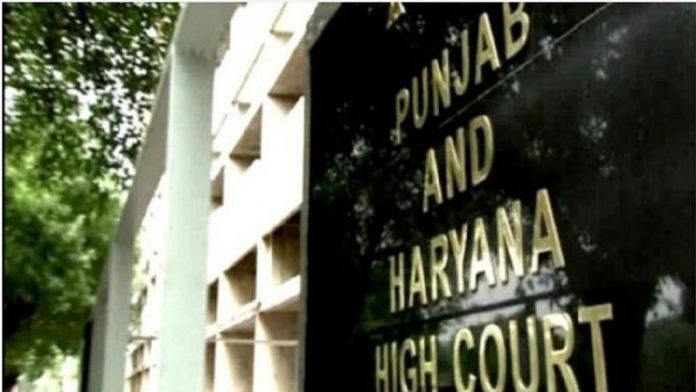The Punjab and Haryana High Court has ruled that offence under the Scheduled Caste and Scheduled Tribe (Prevention of Atrocities) Act, 1989 cannot be made out if any insulting or intimidating remark has not been made within public view or at a public place.
The single-judge Bench of Justice Deepak Gupta recently passed the order on a petition challenging an order of Special Judge, Ludhiana, wherein the anticipatory bail plea of the appellant had been rejected in a murder case.
The Special Judge had further rejected the plea claiming offence for passing casteist remarks under Sections 302, 307, 323 of the Indian Penal Code (IPC), 1860 and Sections 3 & 4 of the Scheduled Castes and Scheduled Tribes (Prevention of Atrocities Act), 1989.
The High Court, while granting anticipatory bail to accused-appellant Rajinder Kaur, observed that in order to constitute an offence under the Act, the insults or intimidation should be on account of the victim belonging to either Scheduled Caste or Scheduled Tribe.
As per the case, the appellant had passed casteist remark to one Sewak Singh by saying what was his “aukaat” to buy a banquet hall and thereafter, the appellant’s husband caused serious injuries by hitting Singh with his car, resulting in his demise.
The counsel for the appellant submitted that no role was attributed to her in the FIR. The entire allegations were against the husband of the appellant, who has already been arrested.
The High Court observed that in the present case, the only attribution against the appellant was that she uttered the words as to what was the status of the complainant to purchase the Banquet Hall and used casteist words against him.
The single-judge noted that the incident took place in the Banquet Hall, when only the complainant party; appellant and her family members were present. Hence, it was not within the public view.
The High Court, while perusing Section 3(1) of the Act, observed that one of the necessary ingredients to make a person liable for punishment for offence atrocities, the remark must be in any public place or within public view.
The Court observed that in the present case, the perusal of the FIR revealed that there was no allegation that accused Rajinder Kaur (appellant) knew that complainant Sewak Singh belonged to the Scheduled Caste. Besides, no particular caste has been uttered by the appellant so as to insult or humiliate the complainant. No particular caste has been disclosed. Even otherwise, the alleged casteist words were uttered in a Banquet Hall, not in any place within the public view, it added.
Advocate Tanvir Singh Attariwala appeared for the appellant, while Deputy Advocate General of Punjab Randeep Singh Khaira and Advocate Manish Verma represented the complainant.
In a similar matter, the Madhya Pradesh High Court has quashed a criminal case under the Act, since the alleged offence took place in a staff room.
The single-judge Bench of Justice Vishal Dhagat recently passed the orders in a case, wherein the accused petitioners were alleged to have verbally accused the complainant while referring to his caste, Chamar, during a staffroom meeting.
The Court noted that Section 3(1)(x) of the SC/ST Act penalised intentional insult or intimidation of a member of a Scheduled Caste or a Scheduled Tribe in any place within the public view.
It noted that since the staff room did not come under a ‘place within public view,’ no offence could be made out against the accused under the Act.
The single-judge Bench further quashed a charge under Section 294 (obscene acts and song) of the Indian Penal Code (IPC), since the alleged verbal abuse did not take place in a public place.
It observed that since the common public did not have access to the staff room without permission of the school, offence under Section 294 of IPC was also not made out against petitioners.
The High Court further said that the offence of criminal intimidation under Section 506 of IPC was not made out against the petitioners either as the complainant had not alleged that he was alarmed when he was allegedly abused.
The single-judge Bench quashed the entire criminal proceeding pending before the Chief Judicial Magistrate in Shahdol.
The petitioners (accused) were represented by Advocate Vipin Yadav, while Government Advocate Akshay Namdeo represented the government of Madhya Pradesh.


